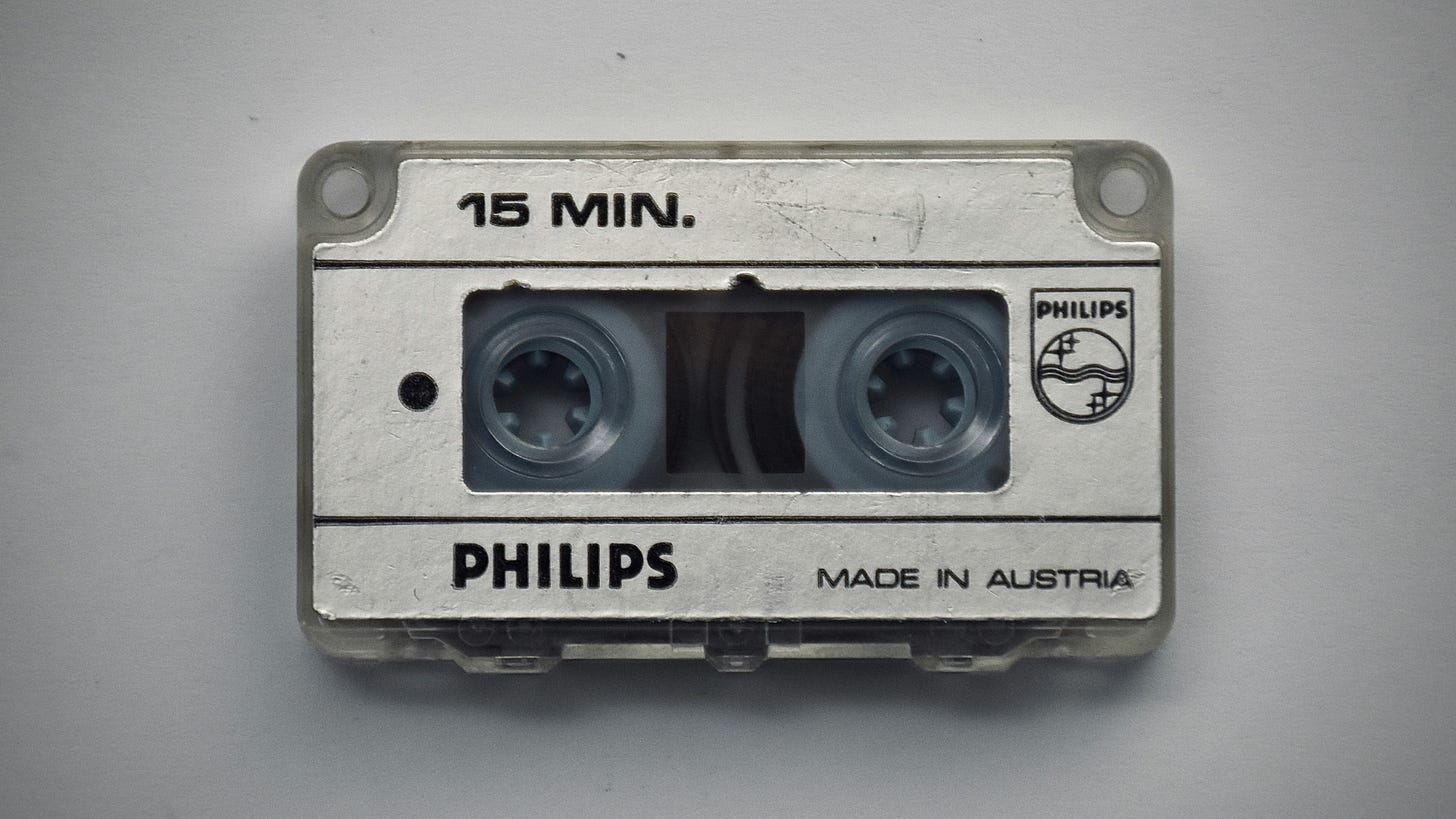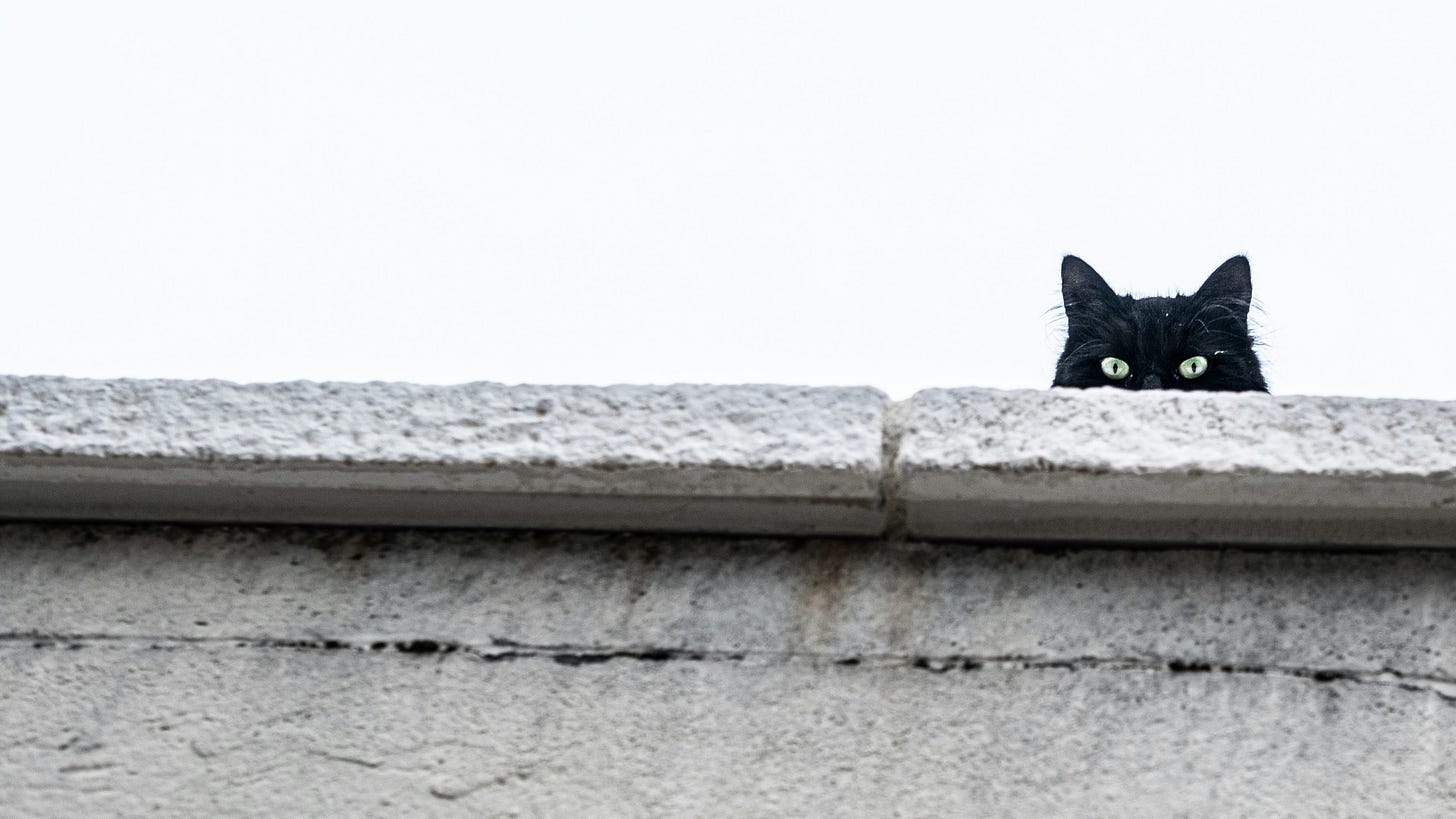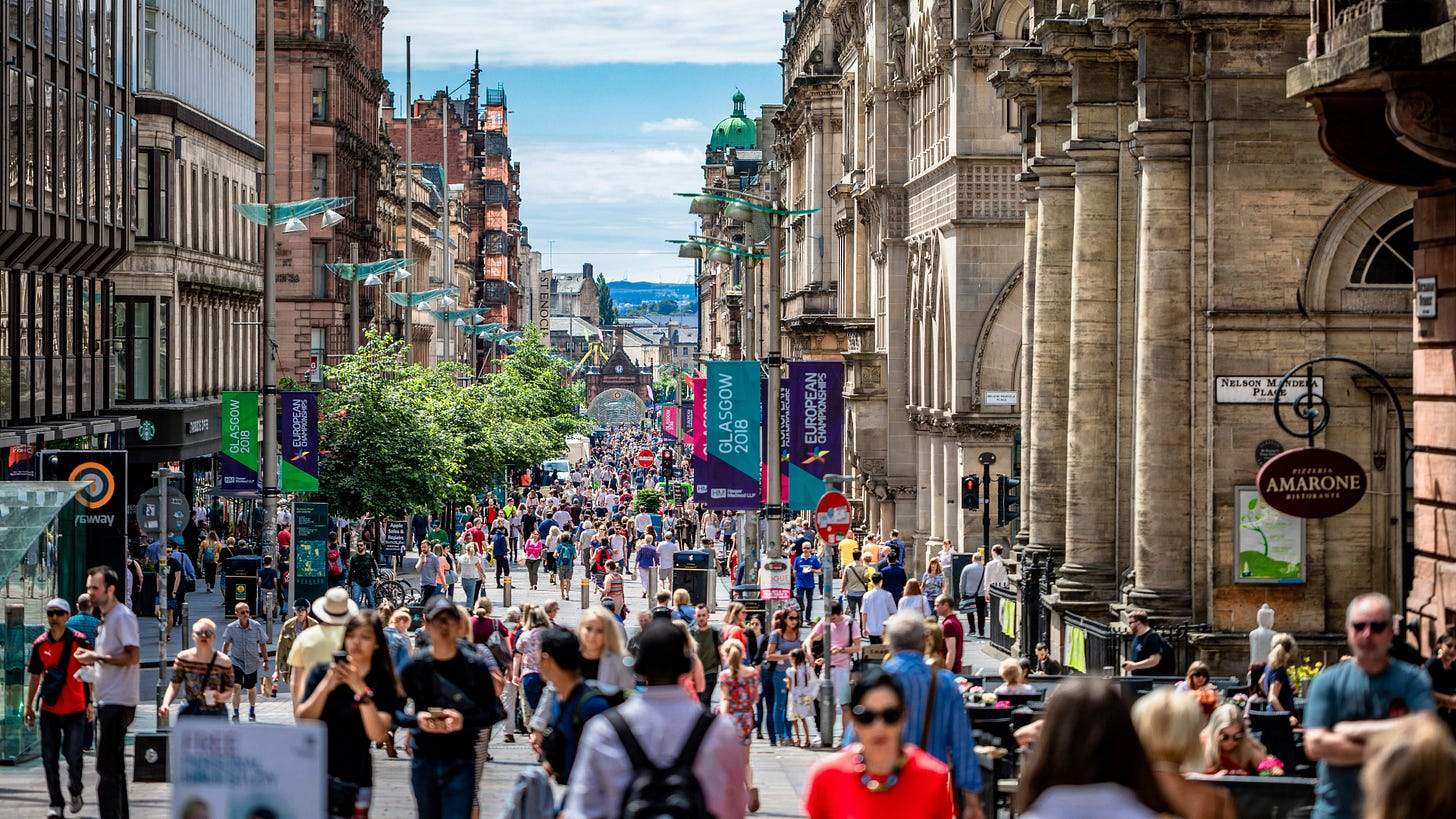Try this: generating poems through voice notes
An unusual but effective poetry writing technique for you to try next time you want some fresh inspiration

Everybody has this romanticised idea of poets wandering around with little black notebooks, scribbling tidbits when inspiration strikes. For years, I’ve used an alternative technique — speaking the tidbits aloud into my phone.
It’s much easier to get away with this when it seems as though half of the people you pass on the pavement these days are on hands-free calls. It’s even easier if your Bluetooth headphones have an inbuilt mic.
Either way, by generating ideas vocally and in real-time, you can leave yourself with a rich vault of poetic content to begin crafting from. I know it might sound cringe, listening back to your own voice, but you soon get over it.
I’ll explain this technique in general and then leave some specific prompts for paid subscribers at the bottom of the post. It might not work for everybody, but if, like me, you have a faster-paced brain, it can pay dividends.
Before I go any further…
If you haven’t watched Louise Fazackerley’s poem I Want My Country Back, you need to do so ASAP! You can view it on Instagram here.

So, what exactly am I talking about?
Basically, I first fell in love with poetry through listening to it. And I take far more from live performances than I do from reading. So, perhaps on some level, listening to speech or expressing ideas through speech suits my brain.
But I’ve also noticed that expressing thoughts or making observations through speech can enable me to be more instinctive, creative, impulsive, and articulate than when I’m sitting with a notebook and pen.
The concept of doing a free-write is great, but even when you’re writing quickly and in the zone, you won’t rifle through words or ideas at the same rate as if you were speaking aloud instead.
So, I began experimenting with using voice recordings first, and then mining them for more considered or crafted content. The idea isn’t to freestyle a draft of a poem, but purely to make observations and capture experiences in real-time.
It’s also brilliant for potentially capturing background noises that might enrich your content: tidbits of passing conversations, the various textures you get from urban or nature-based settings, and so on. You could even record without speaking.
Don’t put yourself under pressure to be profound or to reel off crafted lines of poetry. Just exist in the moment and try to relax into articulating each passing thought or observation out loud. You’re only speaking to your future self!

It might feel easier if you pretend you’re speaking to a friend. But to be honest, I’d try to articulate as many observations and reactions as possible as you stroll through somewhere that’s likely to provide some form of stimulation.
The process of walking, rather than sitting or standing still, helps your brain to find a certain rhythm and keeps your ideas flowing. It also means you’re environment is constantly shifting slightly, step by step.
You could set a time trial — I’ll record for at least 10 — or go about it instinctively. You could also create a collection of shorter recordings on the same walk. Either way, you’ll end up with ideas that you wouldn’t have through writing.
Once you have the recording…
I’d suggest waiting a few weeks before listening to the recording(s). That means you’ll be slightly removed from your initial stream-of-consciousness and will be able to meet it on a different plane of creativity.
Obviously, everybody’s recordings will be totally different, and so I can’t provide specific advice here. Gather as many sensory elements as you can. Look for patterns or tiny observations that can illuminate a bigger picture.
Look for contrasts, or anything surprising or unusual. Look for elements to enhance whatever mood you’re trying to create, and find images to stitch together either in harmonious or even paradoxical ways.

A few final thoughts before the prompts
One of my favourite early resources for this was a 30-minute recording that I made on the Subway in Manhattan back in 2018. I’ve uploaded the file behind the paywall. Yes, I’m aware that this is excruciatingly cliché.
This is all about the combination of two things. Your chosen environment merely existing all around you, unaware that it’s being recorded. And you responding to this environment instinctively and in real-time.
Try to capture the fantastic and the mundane. The weekly shop. The bustling city centre. The quiet leafy path. The commute. The country hike. Whatever it may be, it’s bound to be rich with poetic content. Capture it and see what unravels.
Keep reading with a 7-day free trial
Subscribe to The Day Job | Matt Abbott's creative & practical poetry tips to keep reading this post and get 7 days of free access to the full post archives.


